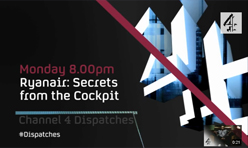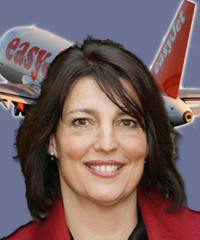 |
 |
|
With the report by Channel 4’s Dispatches programme into the safety of Ryanair’s policy of carrying 'minimum fuel’ on all it’s flights, the public’s attention has turned to all budget airlines, questioning whether or not they all follow the same principles of that of Ryanair.
The public may well assume that the airline they use does not have the same fuel policy that led to three Ryanair flights in one night as they were queued to land at Spain’s Valencia airport to have to declare a fuel emergency; requiring them to be given immediate landing, ahead of those planes queued before them. Furthermore, those concerned with health and safety generally may well remain sceptical that Ryanair is not the only airline that implements the same fuel policy as they do. On 16th August, Chris Ingram, Unionsafety web editor (in a personal capacity) wrote to easyJet, the second biggest budget airline behind Ryanair, asking them to confirm just what their fuel policy is. In an email sent directly to easyJet CEO, Carolyn McCall, he wrote: Dear Ms McCall, In light of the publicity around the safety and fuel policy of Ryanair and the sacking of their once Chief safety Pilot, I am writing to you to express my concern about such a policy being also that of easyJet's. He added: Whilst it is not always appropriate to comment about a competitor, I would have thought that in this case that easyJet would have wished to reassure its customers by making clear easyJet's fuel policy publically. After all, the question of safety and fuel policies of all budget airlines is now under scrutiny if not questioned, by the public. Further, and although this email is written in a totally personal capacity; as the web editor of a health and safety website (www.unionsafety.eu) and a trade unionist, and having run a news item regarding Ryanair's fuel policy and subsequent anti-union stance; I would be happy to quote what easyJet's policy on these matter is. He concluded: If you have issued a press release regarding this issue and I have missed it, please can you supply me with a copy? I would dearly like to know what the airline's policy on fuel levels being carried on board it's flights actually is. It has to be said that very few Chief Executives of major companies, not least FTSE100 companies, respond direct to their customer’s enquiries, and where there is a response, it usually comes from customer relations via a standard non-descript template; seldom addressing all of the concerns raised. It was a pleasant surprise therefore Chris Ingram said, to receive a personal response from easyJet’s CEO Carolyn McCall ten days later via an email that addressed all of the issues, and with clarity rather than a bland statement. This was her response in full: Dear Chris, The safety of our passengers and crew is easyJet’s highest priority and the airline has a very strict set of rules around the amount of fuel we carry which always exceeds the minimum requirements laid down by our regulator the CAA.
As a minimum, every easyJet flight plan identifies alternate suitable airports for landing. The aircraft will always carry additional fuel to allow for any diversion, a further 30 minutes of holding and both an extra contingency volume and whatever additional fuel is deemed required by the airline for operational conditions on that route. The decision on how much extra fuel is carried (in addition to the above) on each flight rests with the Captain who reviews all the information available to him or her and uses their experience and judgement to make the final decision. easyJet provides pilots with a state of the art flight planning system, where weather, airport and specific aircraft data are used to determine satisfactory levels of departure fuel. Taking all the above into account, this means that easyJet aircraft carry additional, discretionary fuel on every flight. The ultimate decision is the Captain’s and it is always supported by the airline. I trust this reassures you. Best, The key element here is that easyJet not only do not have a ‘minimum fuel’ policy, they adhere to CAA fuel requirements, and not an enforced minimum; but have a policy which allows additional fuel discretion by their pilots backed up by a safety system that supports their Pilots in making crucial decisions which impact upon the safety of the flight, the airline’s staff and all of its passengers. Source: easyJet / C Ingram See also: Ryanair Pilots Group Blows The Whistle On Fuel Safety Failings |
 None of the budget airline carriers have commented on the Ryanair expose, nor would that be expected. However, airlines such as easyJet could have been expected to attempt to assure their passengers of their concerns for passenger safety and distanced themselves from the attitude of Ryanair and published their own fuel policies.
None of the budget airline carriers have commented on the Ryanair expose, nor would that be expected. However, airlines such as easyJet could have been expected to attempt to assure their passengers of their concerns for passenger safety and distanced themselves from the attitude of Ryanair and published their own fuel policies. Each flight is fuelled to allow for that flight's weight of passengers and bags together with flight length details and up to the minute information about likely weather conditions and other vital information (such as possible delays due to unusual events such as ATC strike action). Additionally, all pilots are provided with access to statistical information where they can see specific data on historic fuel burns on the routes they are assigned to fly.
Each flight is fuelled to allow for that flight's weight of passengers and bags together with flight length details and up to the minute information about likely weather conditions and other vital information (such as possible delays due to unusual events such as ATC strike action). Additionally, all pilots are provided with access to statistical information where they can see specific data on historic fuel burns on the routes they are assigned to fly.